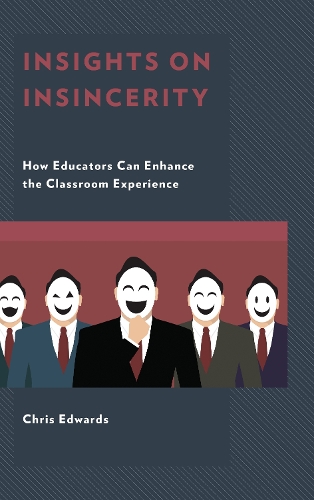
Insights on Insincerity: How Educators Can Enhance the Classroom Experience
(Paperback)
Available Formats
Publishing Details
Insights on Insincerity: How Educators Can Enhance the Classroom Experience
By (Author) Chris Edwards
Bloomsbury Publishing PLC
Rowman & Littlefield Publishers
14th March 2018
United States
Classifications
Professional and Scholarly
Non Fiction
Teaching skills and techniques
Physical Properties
Paperback
128
Width 151mm, Height 227mm, Spine 10mm
200g
Description
Erasmus praised folly and the Romantics waxed poetically about love, but no one until now has traced the history and impact of insincerity on society and the humanities. Insincerity arises when someone feels one way but acts another and an insincere situation looks to have one purpose but really hides another. Insincerity finds expression in four types of relationships: 1. From authority to the subordinate, 2. From the subordinate to authority, 3. Between equals 4. In society and in the self. Educators can discover how highlight insincerity in literature, history, psychology, sociology, politics, and popular culture. All readers can learn how to identify insincerity in their everyday relationships. Was that meeting at work really about conveying information and soliciting responses, or was it really about reinforcing the corporate hierarchy When Galileo apologized to the Inquisition for positing a solar system, did he bring an end to an era of great religious sincerity What did George Orwell get so wrong about insincerity in 1984 Most importantly, readers can find out what they should do when they you encounter that modern phrase that manifests insincerity: Thanks so much for your feedback.
Author Bio
Dr. Chris Edwards is a public-school teacher in the Midwest, and the author of numerous books on science, philosophy, and educational theory. He directs a summer institute for math and science teachers, is a frequent contributor to Skeptic magazine, and has presented his teaching methodology nationally through publications and presentations through the National Council for Social Studies.
